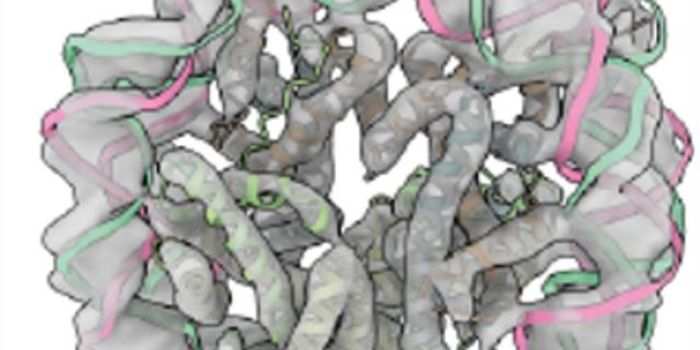Rheumatoid Arthritis Findings Open New Treatment, Diagnostic Routes
Scientists have made a surprising discovery that provides new insight into the painful flares of rheumatoid arthritis (described in the video below) and may help create a new diagnostic tool and treatment method. Researcher Sanja Arandjelovic, Ph.D. was studying the inflammation that is a hallmark of rheumatoid arthritis and found that by deleting a gene, ELMO1, symptoms of the disease were relieved in a mouse model. The findings have been reported in Nature Immunology.
Study collaborators Kodi Ravichandran, Ph.D. and Inova Health researcher Thomas Conrads, Ph.D. initially expected that a reduction of ELMO1 would lead to an increase in inflammation. "This was a complete surprise to us initially," said Ravichandran, who is chairman of the University of Virginia’s Department of Microbiology, Immunology and Cancer Biology. "I love those kinds of results because they tell us that, first, we did not fully comprehend the scientific problem when we began exploring it, and, second, such unexpected results challenge us to think in a different way. Given that rheumatoid arthritis affects millions of people worldwide, we felt the need to understand this observation better."
Further study revealed that ELMO1 activity in a type of white blood cell called neutrophils works to encourage inflammation. Neutrophils act as sentinels that patrol our body for invaders and can respond to threats.
"Normally they are good for us, against many bacterial infections," explained Ravichandran. "But also there are many times when they produce a lot of friendly fire that is quite damaging to the tissues - when they hang around too long, or there are too many neutrophils coming in - in this case, infiltrating into the joints during arthritis."
The scientists found that the ELMO1 gene can naturally carry a small change in one base pair (called a single nucleotide polymorphism or SNP). When the ELMO1 gene has the SNP, neutrophils increase their mobility, which may cause many of them to invade the joints, producing inflammation. A diagnostic test that would require a bit of blood could tell clinicians when patients are carrying this SNP (in their ELMO1 gene).
This work also suggests that the ELMO1 gene could be manipulated in patients. The gene seems to only work with a limited set of proteins and primarily, maybe only, in neutrophils, suggesting that potential side effects would be limited.
"ELMO1 partners with [a] very specific set of proteins only in the neutrophils but not in other cells types we tested," said Ravichandran. "So, presumably, you may be able to affect only a select cell type."
At Inova, researchers identified the proteins that ELMO1 partners with, and many of them have already been connected to arthritis. That seems to confirm that ELMO1 plays a critical role in the disorder.
When ELMO1 was blocked in mice, it relieved the symptoms of the disease and did not appear to cause any side effects. Ravichandran’s lab is now working on finding drugs that can disrupt ELMO1. They also want to create a test that can indicate the presence of the ELMO1 SNP.
"This is another example of how fundamental basic research can lead to novel discoveries on clinically relevant problems that affect a large number of people," Ravichandran concluded.
Sources: AAAS/Eurekalert! Via University of Virginia Health System, Nature Immunology









